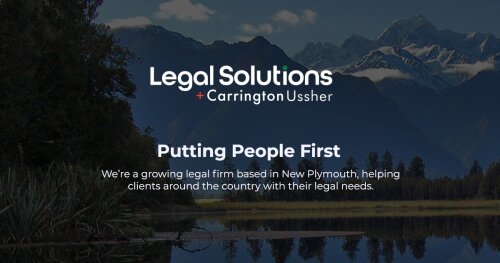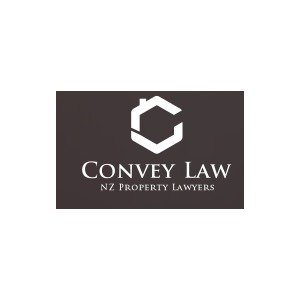Best Employer Lawyers in New Zealand
Share your needs with us, get contacted by law firms.
Free. Takes 2 min.
Or refine your search by selecting a city:
List of the best lawyers in New Zealand
About Employer Law in New Zealand
Employer law in New Zealand is primarily governed by the Employment Relations Act 2000, which establishes the framework for employers and employees to engage in productive and fair working relationships. This legal field encompasses a wide range of matters, including employment contracts, workplace safety, dispute resolution, employee rights, and employer obligations. Employers in New Zealand have to comply with these laws to ensure a fair, equitable, and safe work environment for their employees.
Why You May Need a Lawyer
There are several situations where employers in New Zealand might require legal assistance, including:
- Drafting or reviewing employment agreements to ensure compliance with local legislation.
- Handling disputes or grievances raised by employees, which might require mediation or legal proceedings.
- Navigating complex issues such as workplace harassment, discrimination, or wrongful termination claims.
- Understanding employer responsibilities under health and safety regulations.
- Guidance during restructuring or redundancy processes to ensure fair practice and compliance with legal requirements.
- Advising on policies and practices to prevent potential legal issues.
Local Laws Overview
Key aspects of local laws relevant to employers in New Zealand include:
- Employment Contracts: All employees must have a written employment agreement, detailing terms, conditions, and duties.
- Minimum Employment Rights: Laws stipulate minimum wage rates, holiday entitlements, sick leave, and rest breaks.
- Health and Safety: The Health and Safety at Work Act 2015 requires employers to ensure a safe working environment.
- Dismissal Procedures: Employers must follow legally valid reasons and processes for dismissing an employee, such as performance-related issues or redundancy.
- Dispute Resolution: The Employment Relations Authority facilitates mediation and resolution of employment disputes.
- Discrimination Laws: Prohibitions against employment discrimination based on attributes like age, race, gender, and disability.
Frequently Asked Questions
What are my obligations when drafting employment contracts?
You must provide every employee with a written employment agreement that complies with the Employment Relations Act 2000. This should outline the roles, terms, and conditions of employment clearly and comprehensively.
What constitutes a fair dismissal in New Zealand?
A fair dismissal must be procedurally correct and substantively justified, generally due to performance issues, misconduct, or redundancy, following a fair process outlined in employment law.
How can I handle a workplace dispute legally?
Initially, try to resolve it internally through discussion or mediation. If unresolved, the Employment Relations Authority and Employment Court can provide formal resolution processes.
What steps should I take to ensure workplace safety?
Comply with the Health and Safety at Work Act 2015 by conducting risk assessments and implementing appropriate health and safety measures, ensuring employee training and reporting any hazards promptly.
Am I required to provide pay slips to employees?
Yes, employers must provide pay slips detailing hourly rates, deductions, and net pay, helping ensure transparency and compliance with wage regulations.
What are the protections against discrimination in the workplace?
The Human Rights Act 1993 and Employment Relations Act 2000 safeguard against workplace discrimination based on age, sex, race, disability, etc., and require employers to maintain an inclusive work environment.
What is the process for making an employee redundant?
Redundancy must be genuine, and you need to consult with affected employees, consider alternative employment options, and provide adequate notice and compensation as per the employment agreement.
How do I address an employee’s poor performance?
Follow a structured process that includes regular performance reviews, providing constructive feedback, setting improvement goals, and offering appropriate training or support before taking further action.
What are my obligations regarding employee leave entitlements?
Employers must adhere to leave entitlements set out in the Holidays Act 2003, which includes annual leave, public holidays, sick leave, and bereavement leave.
Can I implement drug testing in the workplace?
Yes, but only if it's part of your employment agreement or company's health and safety policies, and it must be justifiable, especially for safety-sensitive roles.
Additional Resources
For further information and assistance, consider these resources and organizations:
- Employment New Zealand: Offers comprehensive guidance on employment rights and responsibilities.
- WorkSafe New Zealand: Provides resources on workplace health and safety compliance.
- Human Rights Commission: Offers advice and resources on discrimination laws.
- MBIE (Ministry of Business, Innovation and Employment): Provides regulatory guidelines and assistance for employers.
- Law Society of New Zealand: Compile lists and contact details of employment lawyers across the country.
Next Steps
If you need legal assistance with employment matters, consider taking the following steps:
- Identify the key issues or concerns requiring legal advice or support.
- Gather relevant documentation such as employment contracts, correspondence, and other pertinent records.
- Consult with a lawyer specializing in employment law to understand your legal standing and potential actions.
- Engage in mediation or other dispute resolution processes if applicable.
- Implement any legal advice or recommendations to ensure compliance and resolve disputes.
Proactively addressing legal matters can help protect your business and maintain a fair and compliant workplace.
Lawzana helps you find the best lawyers and law firms in New Zealand through a curated and pre-screened list of qualified legal professionals. Our platform offers rankings and detailed profiles of attorneys and law firms, allowing you to compare based on practice areas, including Employer, experience, and client feedback.
Each profile includes a description of the firm's areas of practice, client reviews, team members and partners, year of establishment, spoken languages, office locations, contact information, social media presence, and any published articles or resources. Most firms on our platform speak English and are experienced in both local and international legal matters.
Get a quote from top-rated law firms in New Zealand — quickly, securely, and without unnecessary hassle.
Disclaimer:
The information provided on this page is for general informational purposes only and does not constitute legal advice. While we strive to ensure the accuracy and relevance of the content, legal information may change over time, and interpretations of the law can vary. You should always consult with a qualified legal professional for advice specific to your situation.
We disclaim all liability for actions taken or not taken based on the content of this page. If you believe any information is incorrect or outdated, please contact us, and we will review and update it where appropriate.
Browse employer law firms by city in New Zealand
Refine your search by selecting a city.

















